Health
-
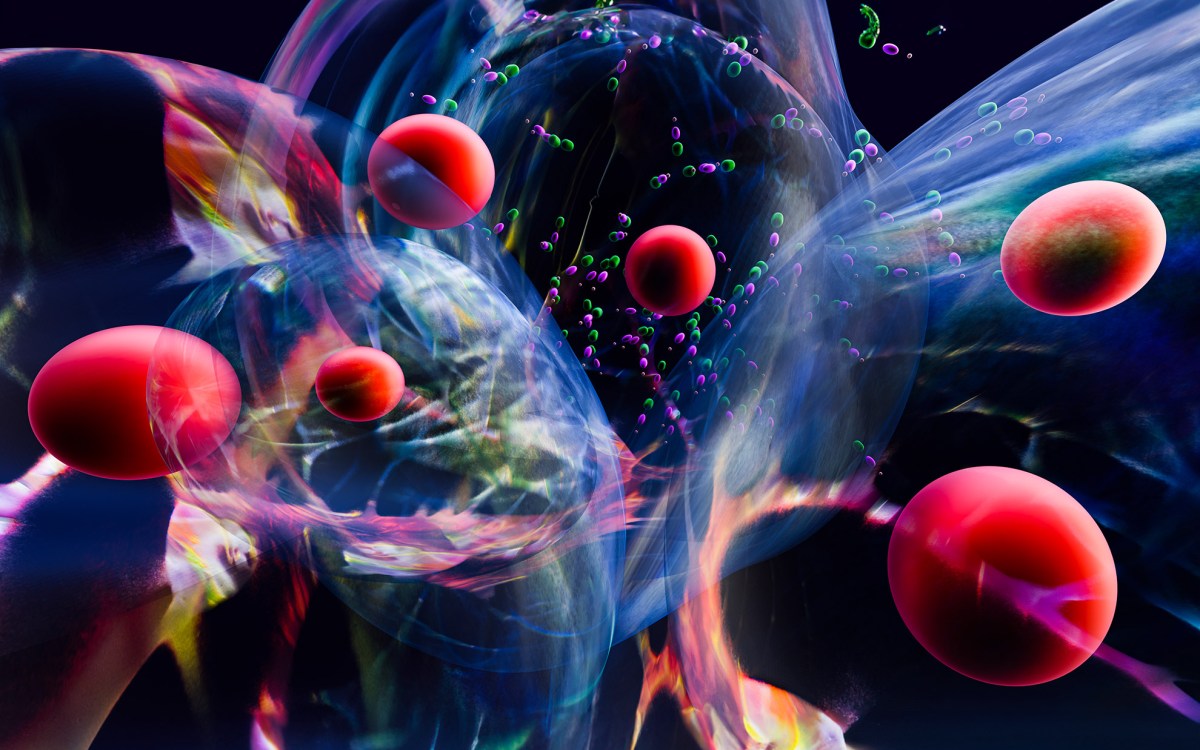
Break in the case for long COVID investigators
Research highlighting chronic inflammation opens path to treating illness that affects millions of Americans

-

The problem with the school smartphone debate
Study finds most districts already regulate devices. Is the real issue enforcement?

-
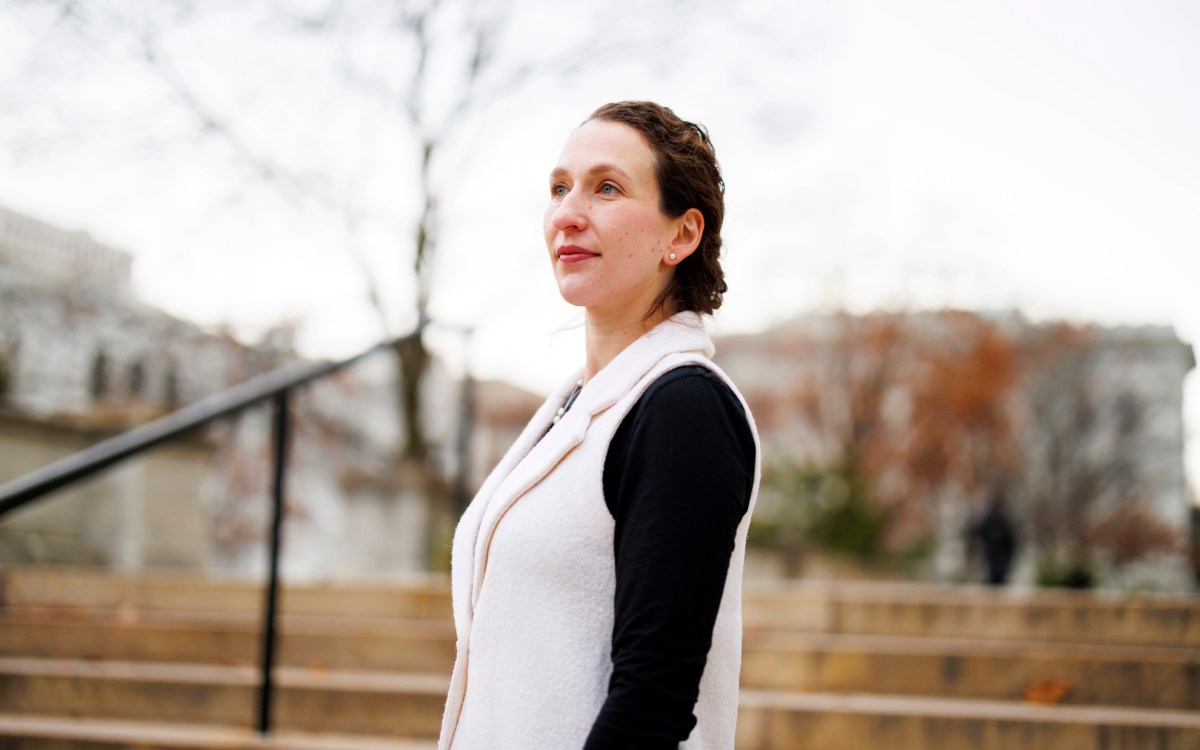
Just who gets a say at FDA public drug-approval hearings?
New research shows negative voices are relatively rare in drug approval hearings.
-

Your digital twin might save your life
AI, statistics offer new possibilities for personalized medicine
-

Time to legalize psychedelics?
Campus debate weighs therapeutic need vs. safety questions
-

How a toxin from the gut microbiome may help spark colorectal cancer
Findings suggest colibactin may be promising target for disease prevention

-
Efforts to prevent childhood obesity must begin early
Normal 0 0 1 751 4281 35 8 5257 11.1282 0 0 0 Efforts to prevent childhood obesity should begin far earlier than currently thought — perhaps even before birth…
-
Hey squash, time for your close-up
Bruce Smith, of the Smithsonian National Museum of Natural History, discusses the rise of agriculture in a talk at the Harvard Museum of Natural History.
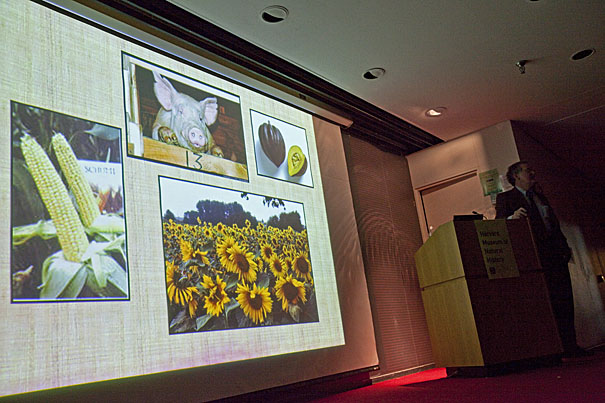
-
Memories are made of this
In a lecture, neuroscientist Eric Kandel ’52 said that researchers have learned that short-term memory, the ability to recall things for minutes or hours, is fundamentally different from long-term memory, which holds information for weeks, months, even a lifetime.
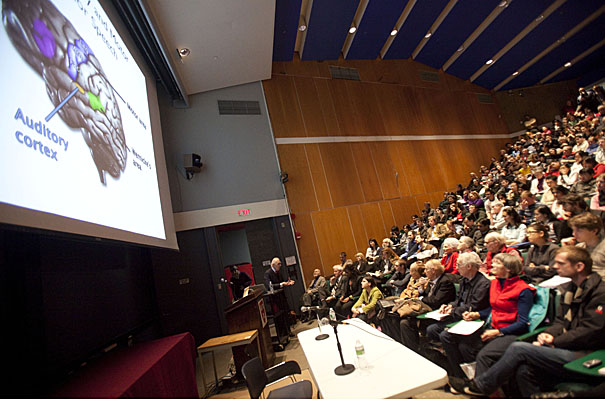
-
Report from Haiti
Nearly a month after a massive earthquake devastated Haiti, paramedic Anthony Croese looked into the crowd outside a destroyed orphanage near Port-au-Prince and spotted an emaciated baby cradled in his father’s arms.
-
A molecule that destroys normal metabolism is found
Overeating in mice triggers a molecule once considered to be only involved in detecting and fighting viruses to also destroy normal metabolism, leading to insulin resistance and setting the stage…
-
New life for old whale exhibit
Skeletons of whales diving and breaching are enlivening the lobby of Harvard’s new Northwest Laboratory building, bringing the killer whale and bottlenose whale specimens new prominence more than 70 years after they were last exhibited.
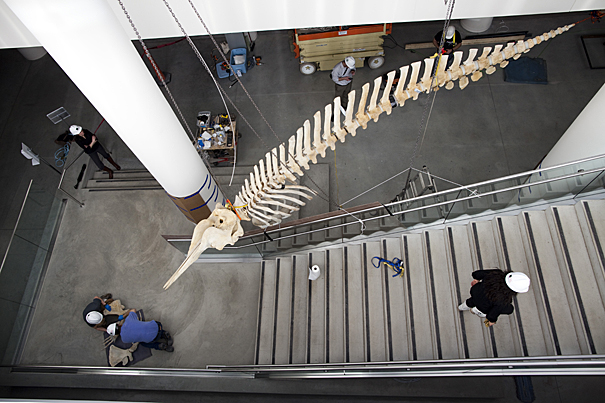
-
The hunt for healthy answers
JoAnn Manson leads a nationwide study to assess whether vitamin D and omega-3 fatty acids can boost immunity and protect against ailments from heart disease to cancer.
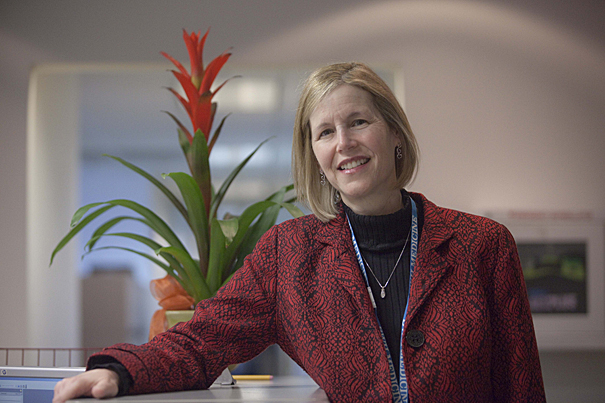
-
Open innovation challenge seeks solutions to type 1 diabetes
The best scientific insights, which ultimately may lead to the solution of the world’s great puzzles, do not always come from the experts in the fields in question. Sometimes they…
-
Looking at cooking
Harvard biology professor Richard Wrangham talks about the importance of cooking in human origins.

-
Perfect landing
New research suggests that barefoot running is far less stressful on feet than running in shoes, if runners learn how to alter their strides properly to reduce impact.
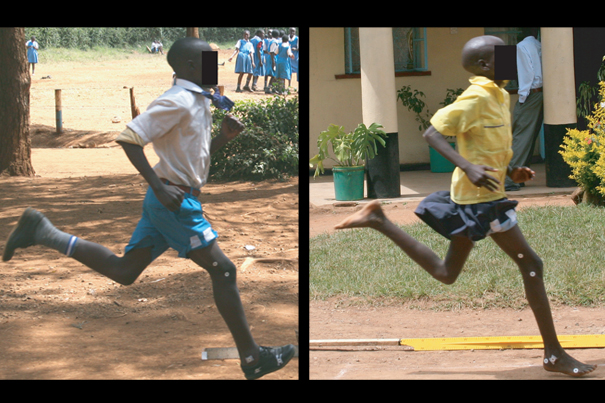
-
Blood tells old cells to act young
Harvard Stem Cell Institute (HSCI) researchers at the Joslin Diabetes Center (JDC) have taken a major step toward eventually understanding — and perhaps slowing — the aging process. In a series…
-
Genes linked to breast cancer drug resistance
Harvard researchers at the Dana-Farber Cancer Institute have discovered a “gene activity signature” that predicts a high risk of cancer recurrence in some breast tumors that have been treated with…
-
U.S. birth weights dip
A study that analyzed data from 36,827,828 U.S. babies born at full-term between 1990 and 2005 has found that birth weights decreased by up to 2.78 ounces during that time frame.
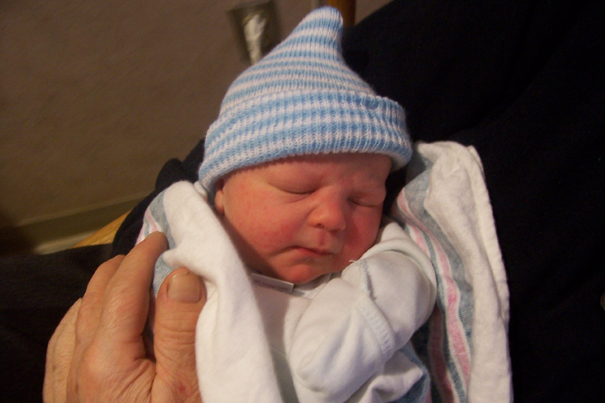
-
Study finds decline in birthweight of full-term infants
Thirteen-pound babies may make headlines, but they aren’t the norm. In fact, U.S. infants are getting smaller, according to Harvard researchers at the Harvard Pilgrim Health Care Institute’s Department of…
-
Sperm competition, cooperation
Some mouse sperm can discriminate between their brethren and the competing sperm from other males, showing an unusual behavioral complexity.

-
Zebrafish point the way
A new technique for screening drugs’ effects on zebrafish behavior is pointing Harvard University scientists toward unexpected compounds and pathways that may govern sleep in humans.
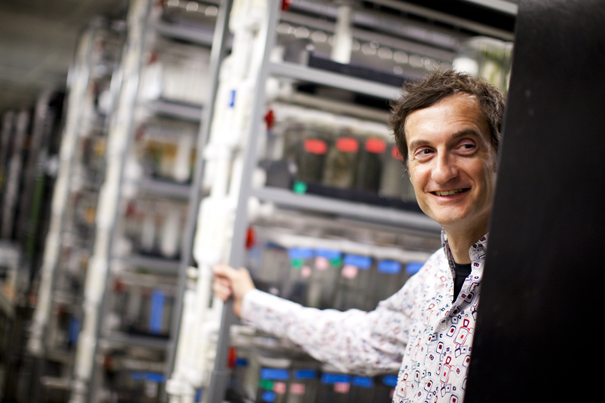
-
Fishing for new medications
A robust new technique for screening drugs’ effects on zebrafish behavior is pointing Harvard scientists toward unexpected compounds and pathways that may govern sleep and wakefulness in humans. Among their…
-
Chronic sleep loss degrades nighttime performance
Although the exact function of sleep remains unknown, sleep is clearly necessary for optimal cognitive performance, learning, and memory.
-
Doubts about health care reform
A group of Harvard scholars and visiting health care experts offers a pessimistic view of health care reform at a Harvard Medical School symposium.
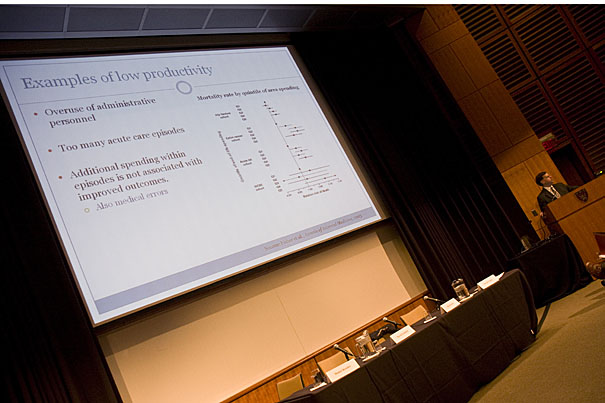
-
Quantum (not digital) computing
Study uses quantum computing to make calculations, in a breakthrough that could change myriad fields, including cryptography and materials science.

-
Light worsens migraine headaches
Normal 0 0 1 701 4001 33 8 4913 11.1282 0 0 0 Ask people who suffer from migraine headaches what they do when they’re having attacks, and you’re likely…
-
Evolution and ailments
The pressures of human evolution could explain the apparent rise of disorders such as autoimmune diseases and autism, researchers say. Some adaptations may even help such ailments persist.
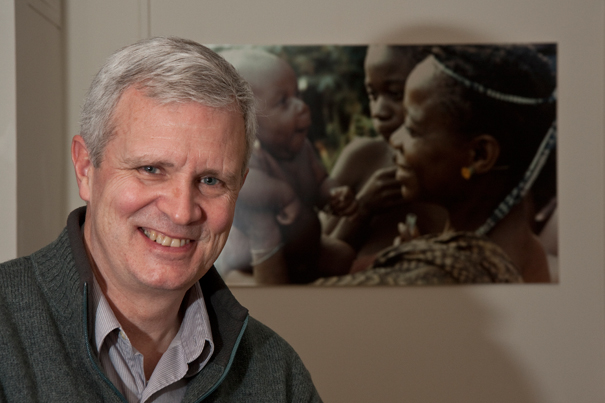
-
Tracking our traits
Researchers devise method to pinpoint key genetic variations under positive natural selection that may impact human health.

-
Tracking genetic traits over time
Fossils may provide tantalizing clues to human history, but they also lack some vital information, such as revealing which pieces of human DNA have been favored by evolution because they…
-
Coronary artery disease more severe in HIV-infected men, study finds
Harvard researchers at Massachusetts General Hospital (MGH) have found that relatively young men with longstanding HIV infection and minimal cardiac risk factors had significantly more coronary atherosclerotic plaques — some…
-
Light maps neurons’ effects
Scientists come up with method to track neurons as they interact with each other.

-
Natural flu-fighting protein discovered in human cells
Harvard researchers report having discovered a family of naturally occurring antiviral agents in human cells, a finding that may lead to better ways to prevent and treat influenza and other…
-
Light used to map effect of neurons on one another
Harvard scientists have used light and genetic trickery to trace out neurons’ ability to excite or inhibit one another, literally shedding new light on the question of how neurons interact…
-
Want to live well?
Harvard faculty members from a range of fields give tips on how to live healthy.

-
Shifts in health care landscape
Harvard School of Public Health Dean Julio Frenk delivered the Barmes Global Health Lecture Dec. 15 at the National Institutes of Health in Maryland, saying that new challenges and opportunities face the global health community amidst a changing health care landscape.



